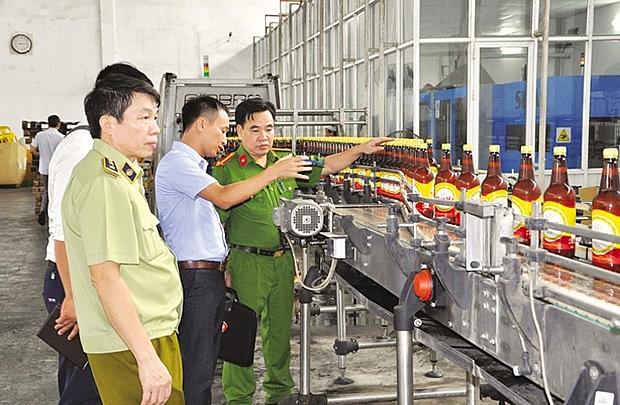A key resolution provision limits inspections and audits to a maximum of once a year for each enterprise, household business or individual business operator, except in cases with clear evidence of legal violations.

HÀ NỘI — Resolution 198, recently adopted by the National Assembly, sets out specific mechanisms and policies to promote private economic development. A key resolution provision limits inspections and audits to a maximum of once a year for each enterprise, household business or individual business operator, except in cases with clear evidence of legal violations.
It also prohibits conducting inspections and audits on the same issue within the year.
Businesses in Việt Nam have long raised concerns over the frequency and overlap of inspections by regulatory agencies, with some companies reporting repeated checks on the same issue by multiple authorities within a year.
These inspections have often resulted in lost time and additional unofficial costs. However, recent legislative developments aim to address this situation and create a more supportive environment for the private sector.
These changes are part of a broader shift in regulatory thinking—from a model of oversight and control to one focused on facilitation and service. The new approach is designed to reduce unnecessary administrative burdens, increase predictability for businesses and encourage growth.
According to a representative from the agricultural product enterprise Mebipha Production and Trading Company, overlapping and repeated inspections have been time-consuming hurdles for them to clear. A new policy framework, they said, will help streamline regulatory processes and reduce disruptions to operations.
The General Director of Xuân Nguyên Group, Lư Nguyễn Xuân Vũ, noted that recent policy directions reflect a more constructive view of the business community.
“There has been a clear recognition that entrepreneurs and enterprises are important contributors to national development,” he said.
The Vice Chairman of the Hồ Chí Minh City Business Association, Đinh Hồng Kỳ, noted that regulatory uncertainty in the past had discouraged some enterprises from scaling up. He added that the recent resolutions could help build trust in institutions and improve the overall business climate.
Resolution 198 complements other key policy efforts, including the National Assembly's Resolution 68 and the Government's Resolution 139.
Together, they represent a broader shift in State management philosophy, focusing on post-check mechanisms rather than pre-emptive control and encouraging rather than intervening in business activities. These reforms are expected to improve regulatory efficiency and create more favourable conditions for the private sector to expand. — VNS





